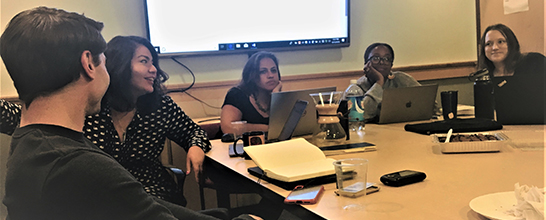

About the CIRA Fellowship
The Yale AIDS Prevention Training Program provides:
- A strong foundation of HIV content knowledge, research skills, and professional networking opportunities for young HIV researchers to foster growth and research impact
- Access to and integration of mentorship, resources, and infrastructure through CIRA and Yale University
- A tiered mentoring structure
- An interdisciplinary approach
- A focus on vulnerable and underserved populations
- Opportunities to conduct ethically-sound, community- based research, domestically and internationally
- Opportunities to work on both descriptive and intervention studies, studying individuals, families, social networks, communities, and society at large
- Research preceptorship and collaboration in ongoing research
- Grant writing
- Professional development seminars in preparation for the job marketing
- Training in research methods and ethics
- CIRA and HIV-related seminars and colloquia
- Support from an established HIV prevention center
The Y-APT curriculum broadly covers:
- Professional Development (e.g. practicing job talks, building teams, creating individual development plans, grant strategies)
- Research in Progress (each Fellow presents their manuscripts/grants twice a year and participates in peer reviewing others work)
- Grant Writing
- Social media use
- Scientific writing retreat (in collaboration with the Research Education Institute for Diverse Scholars program)
- Research skills (e.g. Implementation Science, Community-based participatory research, and technology research)
- Overview of theoretical models, study designs, and analytic approaches in HIV prevention research
- Diversity and inclusion
Through this Fellowship, new scientists are equipped with the skills to advance prevention research and to address future challenges of the HIV/AIDS epidemic and other emerging diseases. Y-APT prepares Fellows to think critically, and to address issues common between HIV and other diseases, such as barriers to and facilitators of behavioral change and understanding the public health response required to stem an epidemic.
Diversity
Over the past 20 years we have trained 77 Fellows from a broad array of disciplines, including: epidemiology, social welfare, social work, applied mathematics, anthropology, education, economics, medicine, and law, as well as clinical, counseling, community and social psychology. Throughout our selection process we seek candidates from a range of disciplines and backgrounds.
We take an active approach to recruiting underrepresented race and ethnic minority, disadvantaged and disabled scholars. In recent years, almost half of our scholars have come from these groups. But despite these successes we continue to make significant efforts to target investigators underrepresented in the workforce, and to bringing together a diverse group of researchers to address an epidemic as complex as this one.
For More Information
For more information on Y-APT, please contact Trace Kershaw (trace.kershaw@yale.edu).







